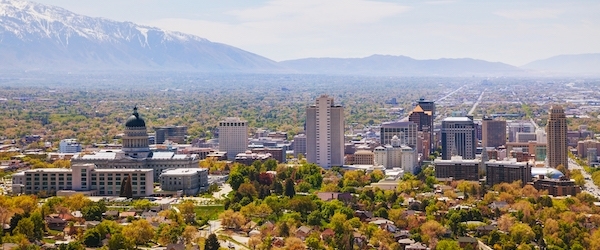Trip Generation, Trip Chains And Polycentric Development In Metropolitan USA

Polycentric development is being promoted to lessen problems of urban sprawl and reduce vehicle miles traveled (VMT). A new article published in the August 2021 issue of Applied Geography examines the difference between "morphological" and "functional" polycentricity in the Wasatch Front Region.
"Trip generation, trip chains and polycentric development in metropolitan USA: A Case Study of the Wasatch Front Region, Utah" asserts that walking friendly built environments are a critical concern in generating trip chains within urban centers, and public transit is an essential mode to connect centers.
Authored by Yehua Dennis Wei, Weiye Xiao and Yangyi Wu of the University of Utah Department of Geography, the paper draws on findings from the NITC project "Reducing VMT, Encouraging Walk Trips, and Facilitating Efficient Trip Chains through Polycentric Development."
The authors argue that moderately compact urban design helps trip generation more than extremely compact urban design. The study examines polycentric development in the Wasatch Front Region, Utah, from a morphological perspective using employment data and a functional perspective by analyzing trip chain behavior. Regarding trip chains, the researchers find that although the automobile is the dominant travel mode outside urban centers, trip chains by walking and biking are common in urban centers.
Read more about the original study: Regional Transportation Goals: Reducing Sprawl through Interconnected Centers.
Photo by AndreyKrav
The National Institute for Transportation and Communities (NITC) is one of seven U.S. Department of Transportation national university transportation centers. NITC is a program of the Transportation Research and Education Center (TREC) at Portland State University. This PSU-led research partnership also includes the Oregon Institute of Technology, University of Arizona, University of Oregon, University of Texas at Arlington and University of Utah. We pursue our theme — improving mobility of people and goods to build strong communities — through research, education and technology transfer.
